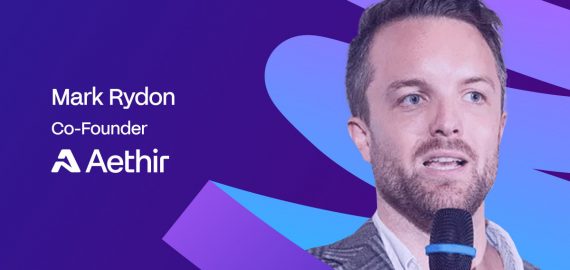Quantum Computing Innovations Pave the Way for Advanced Financial Portfolio Optimization, says Classiq CEO Nir Minerbi


In Brief
Classiq Technologies CEO Nir Minerbi explores the potential of quantum computing in finance, particularly in portfolio optimization.

Quantum computing software platform Classiq Technologies and Citi Innovation Lab – a fintech development center by New York-based banking group Citibank recently announced a collaboration to test the potential of quantum computing in finance and understand its impact on business problem solving, specifically portfolio optimization.
Portfolio optimization is the process of selecting the optimal mix of assets, such as stocks, bonds and other financial instruments, to achieve the highest possible returns for a given level of risk. Citi and Classiq employ the Quantum Approximate Optimization Algorithm (QAOA) for portfolio optimization on Amazon Braket – a fully managed AWS cloud service.
“The advancements include the high-level modeling of quantum algorithms for portfolio optimization, simplifying the design and application process. This could potentially lead to improved financial strategies by enabling more complex and nuanced risk-return analyses that are computationally feasible with quantum computing,” Nir Minerbi, CEO of Classiq told Metaverse Post.
In the current stage of quantum computing technology, known as the Noisy Intermediate-Scale Quantum (NISQ) era, quantum computers face limitations due to noise and qubit count. This constrains the capacity of quantum applications.
Hence, the team looked towards variational quantum algorithms – particularly QAOA. The focus was employing the QAOA quantum algorithm for portfolio optimization, investigating how adjustments to the algorithm’s penalty factor (when introducing constraints to the problem) impacted the algorithm’s performance.
“The study found that adjusting the penalty factors used when introducing constraints to the optimization problem significantly impacts the algorithm’s performance. Specifically, there’s an optimal range for penalty values where the probability of obtaining valid solutions increases,” Minerbi said.
“For equality constraints, there’s a peak penalty value beyond which the likelihood of finding a valid solution decreases. This highlights the importance of fine-tuning penalty factors in QAOA to enhance portfolio optimization outcomes,” he added.
Classiq’s SDK Transforms Quantum Portfolio Optimization
Classiq’s SDK simplifies quantum algorithm modeling, focusing on high-level functional models rather than low-level operations. According to Nir Minerbi, this abstraction enables researchers and financial institutions to design and apply quantum algorithms for portfolio optimization easily and quickly, potentially accelerating the adoption and impact of quantum computing in finance.
He added that the Classiq Engine, an algorithmic quantum circuit-solving technology, powers the SDK.
The team obtained primary insights about optimizing solutions within portfolio constraints from analyzing the results. It was observed that adjusting penalty factors significantly influences the efficacy of the optimization process.
“For inequality constraints, the probability of obtaining valid solutions consistently grows with the penalty factor, whereas for equality constraints, there’s an optimal penalty value,” Classiq’s Nir Minerbi told Metaverse Post.
This underscores the importance of fine-tuning algorithmic parameters and advocates for exploring heuristic methodologies to enhance the performance of quantum algorithms in financial applications.
“Amazon Braket played a crucial role by providing on-demand access to simulators and quantum processing units (QPUs), enabling the execution of complex quantum algorithms for portfolio optimization,” Minerbi explained. “This access allowed for practical experimentation and research into quantum computing applications in finance, accelerating the development and testing of quantum algorithms.”
Talking about what’s next, Minerbi said, “next immediate steps may involve evaluating the options, including continuing to refine and test the QAOA and other quantum algorithms for portfolio optimization, as well as potentially exploring new quantum computing techniques in the process, and exploring expanding the use of quantum computing to other financial use cases.”
“The potential impact includes solving previously intractable financial optimization problems, leading to more efficient markets, improved risk management, and potentially revolutionary changes in financial strategies and operations,” he added further.
Disclaimer
In line with the Trust Project guidelines, please note that the information provided on this page is not intended to be and should not be interpreted as legal, tax, investment, financial, or any other form of advice. It is important to only invest what you can afford to lose and to seek independent financial advice if you have any doubts. For further information, we suggest referring to the terms and conditions as well as the help and support pages provided by the issuer or advertiser. MetaversePost is committed to accurate, unbiased reporting, but market conditions are subject to change without notice.
About The Author
Kumar is an experienced Tech Journalist with a specialization in the dynamic intersections of AI/ML, marketing technology, and emerging fields such as crypto, blockchain, and NFTs. With over 3 years of experience in the industry, Kumar has established a proven track record in crafting compelling narratives, conducting insightful interviews, and delivering comprehensive insights. Kumar's expertise lies in producing high-impact content, including articles, reports, and research publications for prominent industry platforms. With a unique skill set that combines technical knowledge and storytelling, Kumar excels at communicating complex technological concepts to diverse audiences in a clear and engaging manner.
More articles

Kumar is an experienced Tech Journalist with a specialization in the dynamic intersections of AI/ML, marketing technology, and emerging fields such as crypto, blockchain, and NFTs. With over 3 years of experience in the industry, Kumar has established a proven track record in crafting compelling narratives, conducting insightful interviews, and delivering comprehensive insights. Kumar's expertise lies in producing high-impact content, including articles, reports, and research publications for prominent industry platforms. With a unique skill set that combines technical knowledge and storytelling, Kumar excels at communicating complex technological concepts to diverse audiences in a clear and engaging manner.


















































